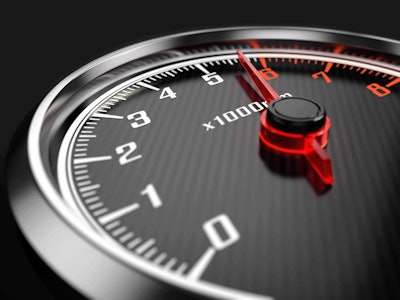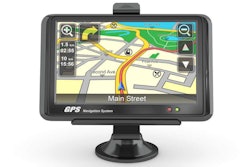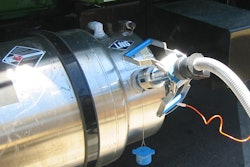
Download engine data to compare shifting behaviors – rpms at shift point – to the optimal rpm “torque bands” for your engine. Adjusting your shifting to fit the engine’s make and model can make a big difference. Every 1,000-rpm reduction in engine speed delivers a 1 percent fuel economy gain.
Keep up with oil and oil filter changes.
A well-maintained engine not only lasts longer, it also has a fuel efficiency edge.
Keep belts at proper tension.
Even slight slipping creates parasitic horsepower loss. Make sure all belts are tightened properly and in good condition.
Maintain fuel filters.
Clogged filters make the engine run rough and work harder. Replace according to the manufacturer’s recommendation.
Maintain DPFs.
A plugged DPF hampers exhaust flow, which can lead to compression or combustion problems if left untreated.
Adjust the fifth wheel to narrow the truck-trailer gap.
The ideal gap should be about 30 inches. Every 10-inch increase increases drag by 2 percent.
Use low rolling-resistance tires.
Deeper-lug tires usually last longer, but their extended tread has slight movement – enough to decrease fuel economy. Shallower lugs decrease rolling resistance and help improve fuel economy.
Run wide-base tires.
They have been proven to deliver better fuel economy than duals.
Monitor tire pressure.
Each 10 psi that tires are underinflated reduces fuel economy by 1 percent. Check tire pressure during pretrip. Tire pressure monitoring systems can monitor the pressure of each tire and, through wireless communications, provide instant alerts through an in-cab display the instant a tire is underinflated.
Check wheel alignment.
Make alignment testing – both on the tractor and trailer – part of your periodic maintenance. It’s essential for optimum fuel economy and maximum tire life.
Match tires to your application.
If you’re running long-haul routes and using tires designed for any other application, your fuel economy will suffer.
Get oil analysis.
The main value of routine analysis is identifying engine problems before they become serious, but some of those problems also can affect fuel usage.










